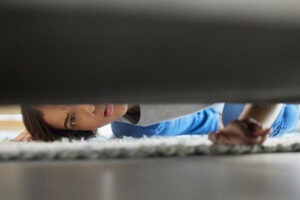Sleep and Mental Health
According to the American Sleep Association, 50-70 million adults have a sleep disorder. Among the most common are insomnia, sleep apnea, narcolepsy, and restless leg syndrome, but simply the absence of a diagnosed disorder does not imply that an individual is experiencing healthy and regular sleep patterns.
Effects of Inadequate Sleep
Because our sleep needs change with age, people require different amounts of sleep at different points in their lives. Generally, children aged 6 through 12 require 9-12 hours of sleep, teenagers require 8-10 hours, and adults require 7-9 hours. Unfortunately, the Centers for Disease Control and Prevention (2016) report that over a third of adults in the United States are not receiving adequate sleep on a regular basis. sleepandmentalhealth
Sleep deprivation has implications for your entire well-being. Cognitively, it inhibits your ability to act quickly, concentrate, and remember things. Physically, it increases your risk of conditions and diseases such as obesity, diabetes, heart disease and hypertension. Further, one study found that sleep deprived individuals (those receiving five hours of sleep per night or less) had higher rates of mortality by approximately 15% (University of Harvard Medical School, Division of Sleep Medicine, 2007). Finally, sleep largely influences our mood and psychological functioning. Conversely, those aspects impact your sleep as well. Lack of sleep can put you at a higher risk of developing anxiety or mood disorders, and increases negative feelings such as anger, sadness, distress, and exhaustion (Dinges D. et al., 1997; Neckelmann, D. et al., 2007. Consider the following tips to improve sleep and mental health.
Things Anyone Can Do to Improve Sleep
- Maintain a consistent routine – Try to wake up and go to sleep at the same times each day, including weekends. This will regulate your circadian rhythm, helping your body become accustomed to regular sleeping and waking times.
- Limit cell-phone and computer use before bed – Research shows that the light emitted from our electronic devices reduces the production of melatonin, one of our natural hormones that tells your body that it’s time to sleep.
- Incorporate exercise into your daily routine – Particularly in the afternoon and early evening, exercise has been shown to improve sleep quality. One study found that 150 minutes of exercise each week improved participants sleep quality by 65%, leading to less feelings of tiredness throughout the day (Loprinzi & Cardinal, 2011)
- Limit your consumption of alcohol – Although drinking may make you feel like you’re sleeping more soundly, it prohibits REM sleep, which decreases the amount of restorative sleep you get. In short, you may fall asleep faster, but you will likely wake up still feeling tired.
- Journal – If you find yourself up at night with racing thoughts, find ways to process those thoughts during the day to allow yourself calmness when it’s time to rest.
- Yoga and Meditation – Amongst improvements in stress reduction, body awareness, and mindfulness, practicing yoga and meditation has been shown to help many people with insomnia, including pregnant women, cancer patients, and the elderly.
- Contact a therapist – Sometimes, sleep problems can lead to or stem from other issues, so it’s important to involve a professional if you are having a significant amount of trouble sleeping. Some professionals use Cognitive Behavioral Therapy to help restructure your though processes and maintain better sleep hygiene.
If you are having trouble falling or staying asleep and want to process the underlying reasons with a trustworthy professional, schedule a free initial consultation with us to get connected with Pittsburgh’s best therapists!
About Makin Wellness :
Founded in 2017 , Makin Wellness is Pittsburgh’s premier therapy and coaching centers located in Downtown , Pittsburgh and New Kensington, PA. The company’s mission is to help people heal and become happy again. Makin Wellness specializes in depression, anxiety, addiction and relationship counseling .

MSEd, LPC, NCC








